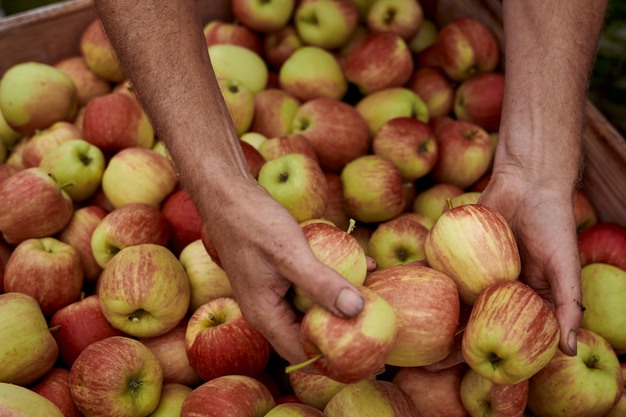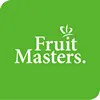Elstars, Jonagolds, and Kanzis may dominate Dutch supermarket shelves, but you can still find apple varieties like Cox Orange, James Grieve, Delcorf, and Dijkmanszoet. Though not well known, these 'forgotten varieties' still have a place, mainly at greengrocers. How are these traditional apple varieties faring?

Less suited to supermarkets
According to Zweer van Aalsburg, Business Unit Manager at FruitMasters Ingredients, these traditional apple varieties are not forgotten, they are just less suited to supermarkets. Those stores focus on large varieties that generate higher per m2 sales. Aside from the summer apple Delcorf, which temporarily fills Elstar's spot, most of the lesser-known varieties end up at greengrocers. These outlets have loyal customers who deliberately choose these tasty, often seasonal, apples.
Limited supply
Zweer says traditional varieties such as Delcorf, Summerred, and James Grieve make up around ten percent of FruitMasters' apple sales. Although that involves millions of kilograms, availability is limited due to a shorter shelf life. "By January, basically everything's gone," he says. Supplementary supplies are vital to prevent these varieties from disappearing from greengrocers' shelves. That keeps consumers coming back.
The season starts with summer varieties like Delcorf and Summerred, followed by fall apples such as Alkmene and Elan. Then comes Cox Orange and cooking apples like Dijkmanszoet and Sweet Caroline. Most of these apples are sold in the Netherlands, with a few exports to the United Kingdom, where the demand for traditional varieties is on the rise.
Changing tastes and consumption
Traditional varieties often appeal to the older generation, while younger people prefer hard apples like Kanzi and Tessa. Zweer notes that consumer tastes are becoming sweeter, partly due to the focus on convenience and ready meals. Demand for traditional cooking apples is, thus, declining since younger generations are less likely to cook and bake at home.
Challenges for growers
Growing traditional apple varieties brings additional challenges. Most orchards have older standard trees that are harder to work with modern equipment. They also require more labor, which is costly. New varieties are often planted more intensively, making them more economically attractive. Also, the current hot summers negatively impact the hardiness of traditional apples. Zweer, therefore, doubts the likelihood of new plantings of traditional varieties.
Just for enthusiasts
The arrival of new apple varieties has caused a form of cannibalism. New varieties often score better on aspects such as hardness, bite, and flavor at the expense of traditional varieties. Still, greengrocers offer space for these unique apples, which remain delicious seasonal products for connoisseurs and enthusiasts.
Changing consumer tastes and cultivation challenges undoubtedly put pressure on traditional apple varieties. Nonetheless, these remain niche products for a specific target group. By offering small volumes of these varieties, greengrocers are crucial. That keeps them accessible to enthusiasts who appreciate their distinctive flavor.
 For more information:
For more information:
Koninklijke FruitMasters
info@fruitmasters.com
www.fruitmasters.com
